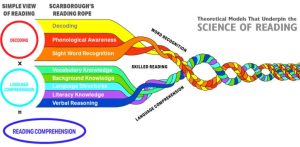Introduction
the journey of a child’s education, the role of parents in fostering literacy is immeasurable. While schools play a pivotal part in shaping a child’s academic path, the influence and support received at home significantly impact their literacy development. The collaboration between parents and educational institutions in nurturing reading skills not only enhances academic success but also cultivates a lifelong love for learning. Understanding the profound significance of parental involvement in reading education is key to empowering children to become proficient readers and critical thinkers.
Establishing a Foundation at Home
Parents are a child’s first teachers and their home environment lays the groundwork for literacy development. From infancy, exposure to books and storytelling creates a foundation for language comprehension and vocabulary acquisition. Engaging in shared reading activities, where parents read aloud and discuss stories with their children, not only enhances reading skills but also fosters a bond and creates positive associations with books.
Nurturing a Reading Culture
The establishment of a reading-friendly atmosphere at home is crucial. Setting aside dedicated time for reading, providing access to a variety of books, and encouraging reading for pleasure promotes a culture where literacy thrives. When children witness their parents reading for enjoyment, they are more likely to emulate this behavior, reinforcing the value of reading beyond academic requirements.
Collaborative Efforts with Schools
Parental involvement extends beyond the home and into the educational institution. Collaborating with teachers and schools creates a cohesive approach to supporting a child’s literacy journey. Parent-teacher partnerships facilitate a deeper understanding of a child’s progress, strengths, and areas needing improvement, enabling tailored strategies to enhance reading skills.

Encouraging Active Engagement
Engaging children in discussions about their reading experiences stimulates critical thinking and comprehension skills. Encouraging them to ask questions, summarize stories, or relate narratives to personal experiences promotes deeper understanding and enhances their ability to extract meaning from texts.
Embracing Diversity in Reading Materials
Introducing diverse literature that represents different cultures, experiences, and perspectives not only enriches a child’s worldview but also promotes empathy and understanding. Parents play a pivotal role in exposing children to literature that reflects the diversity of the world, fostering a more inclusive and empathetic approach to learning.
Technology as an Ally
In today’s digital age, incorporating technology into reading activities can further engage children. Educational apps, audiobooks, and interactive e-books can complement traditional reading methods, catering to diverse learning preferences and enhancing accessibility to reading materials.
Celebrating Milestones and Progress
Acknowledging and celebrating a child’s reading milestones, whether it’s finishing a book or mastering a new set of words, reinforces their confidence and motivation. Encouragement and positive reinforcement from parents play a significant role in nurturing a child’s perseverance and enthusiasm for reading.

Conclusion
The symbiotic relationship between parental involvement and reading education is undeniable. When parents actively participate in their child’s literacy journey, they not only contribute to academic success but also instill a lifelong passion for learning. By fostering a nurturing environment at home, collaborating with educators, and embracing diverse reading materials and methods, parents become instrumental in shaping their children into proficient readers and critical thinkers, laying the foundation for a brighter academic future.




